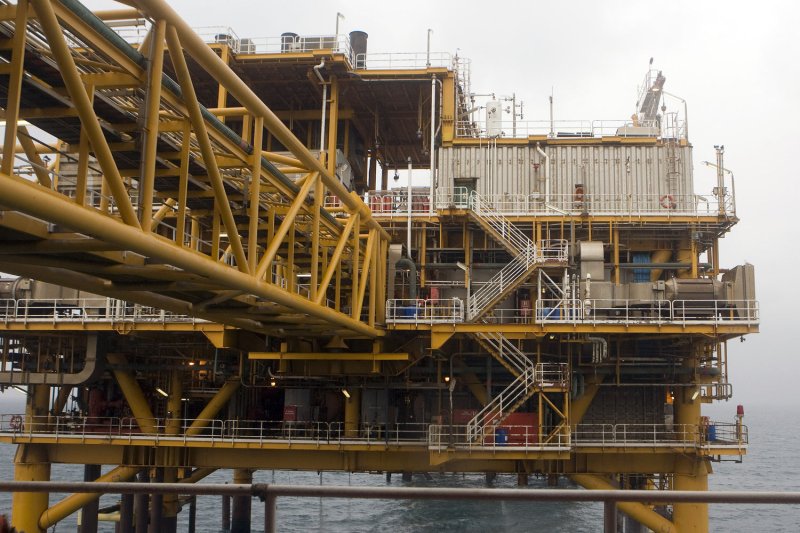A general view of the South Pars quarter one (SPQ1) natural gas platform in the Persian gulf waters near the southern port of Asalouyeh, Iran, on January 27, 2011. South Pars is the world's largest gas field, and shared between Iran and Qatar. Iran expects to fully develop its part of South Pars by 2015. File Photo by Maryam Rahmanian/UPI |
License Photo
TEHRAN, Feb. 7 (UPI) -- Iran is delivering fuel to private-sector industries in Afghanistan following a supply agreement reached by both sides, the Iranian oil minister said.
Iranian Petroleum Minister Masoud Mir Kazemi said he hoped Kabul would start making all of its fuel purchases from Iran under a bilateral deal, the Oil Ministry's Petroenergy Information Network reports.
"Afghanistan's private sector buys all its needed products from Iran," the minister added.
Tehran claims about 30 percent of the fuel from Russia, Turkmenistan and Iraq headed for Afghanistan passes through Iranian territory.
A decision from Tehran in December to stop diesel tankers from crossing the border into Afghanistan left thousands of deliveries stranded in Iran and sparked a rise in commodity prices in Afghanistan.
Iranian diplomats had earlier warned Kabul that letting NATO forces in the country use Iranian fuel would endanger what were said to be undisrupted exports, though Tehran denied placing a ban on fuel deliveries to Afghanistan.
Kabul was warned that Iranian fuel was to be used for domestic purposes only, however.
The oil minister added that as Iran starts producing more fuel, exports can be expected to increase.
"As new refineries come on stream and the production capacity increases, the current reserves can be exported," he said.















